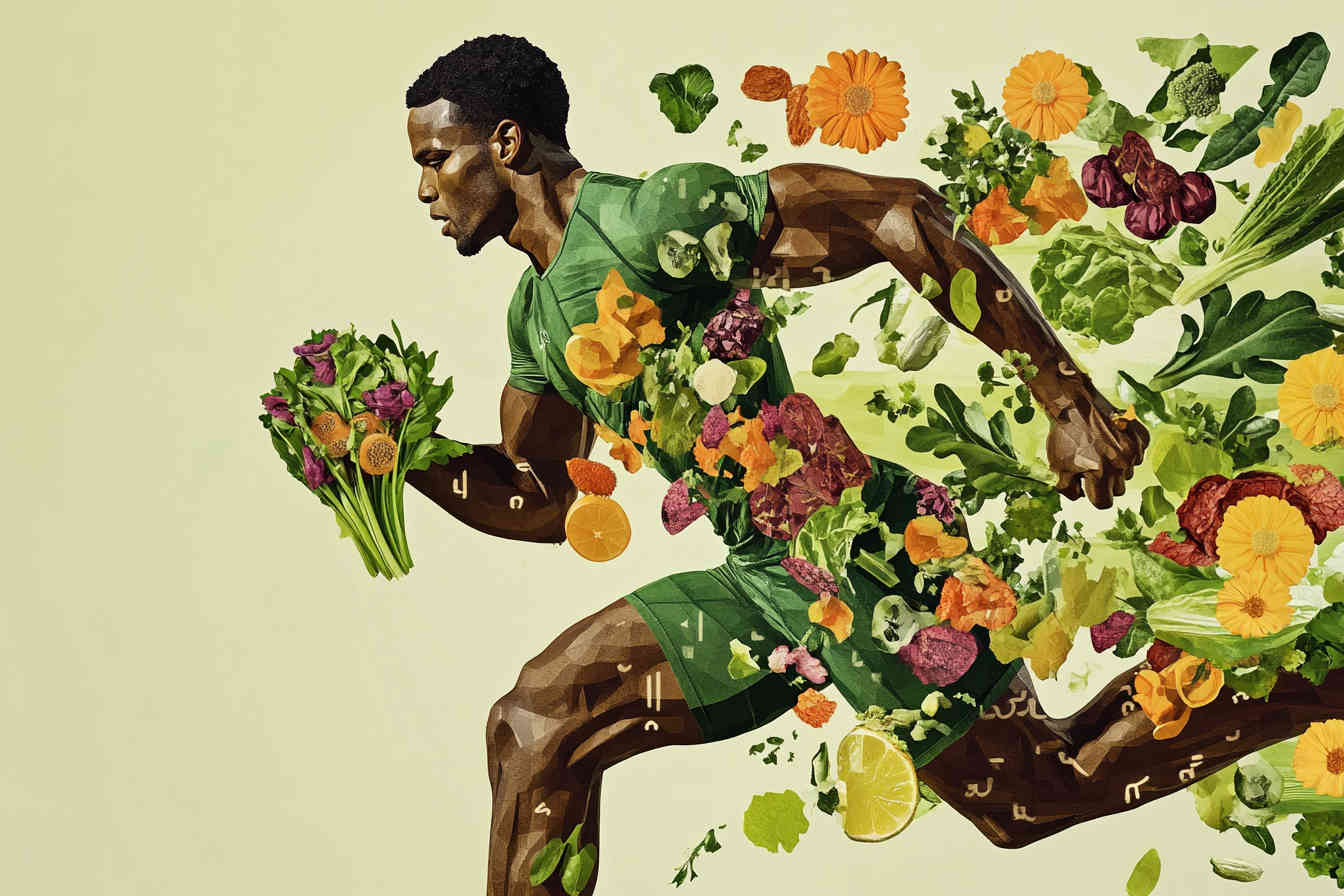As more athletes adopt plant-based diets, understanding how to optimize nutrition for peak performance becomes essential. A well-planned plant-based diet can provide all the necessary nutrients to support athletic endeavors, from endurance sports to strength training. In this article, we will delve into strategies for optimizing a plant-based athlete diet to ensure maximum performance and recovery.
Understanding Macronutrients in a Plant-Based Diet
1. Carbohydrates: Carbohydrates are the primary energy source for athletes. Plant-based diets naturally provide ample carbohydrates through fruits, vegetables, whole grains, and legumes. Focus on complex carbohydrates like oats, quinoa, and sweet potatoes for sustained energy.
2. Proteins: Protein is crucial for muscle repair and growth. Plant-based protein sources include beans, lentils, tofu, tempeh, seitan, and quinoa. Combining different plant proteins throughout the day ensures a complete amino acid profile.
3. Fats: Healthy fats are essential for hormone production and energy. Sources of healthy fats in a plant-based diet include avocados, nuts, seeds, and olive oil. Omega-3 fatty acids, found in flaxseeds, chia seeds, and walnuts, are particularly important for reducing inflammation.

Key Micronutrients for Plant-Based Athletes
1. Iron: Iron is vital for oxygen transport and energy production. Plant-based sources of iron include lentils, chickpeas, spinach, and fortified cereals. Pairing iron-rich foods with vitamin C-rich foods like citrus fruits enhances absorption.
2. Calcium: Calcium supports bone health and muscle function. Plant-based sources include fortified plant milks, tofu, almonds, and leafy greens. Ensure adequate calcium intake to prevent bone injuries.
3. Vitamin B12: Vitamin B12 is essential for nerve function and red blood cell production. Since it is primarily found in animal products, plant-based athletes should consider supplements or fortified foods like nutritional yeast and plant milks.
4. Vitamin D: Vitamin D is crucial for bone health and immune function. Sun exposure is a natural source, but supplements or fortified foods may be necessary, especially in regions with limited sunlight.
5. Zinc: Zinc supports immune function and protein synthesis. Plant-based sources include pumpkin seeds, chickpeas, lentils, and quinoa. Ensure adequate zinc intake to support recovery and overall health.
Pre-Workout Nutrition for Plant-Based Athletes
1. Timing: Consume a balanced meal 2-3 hours before your workout. This meal should include carbohydrates, protein, and healthy fats to provide sustained energy.
2. Carbohydrate Focus: Prioritize complex carbohydrates like whole grains, fruits, and vegetables. These provide a steady release of energy during your workout.
3. Hydration: Stay hydrated by drinking water throughout the day. Consider a small snack like a banana or a handful of nuts 30-60 minutes before exercise for an extra energy boost.

Post-Workout Nutrition for Plant-Based Athletes
1. Protein and Carbohydrates: Consume a meal or snack containing both protein and carbohydrates within 30-60 minutes after your workout. This helps replenish glycogen stores and supports muscle repair.
2. Examples: A smoothie with plant-based protein powder, banana, and almond milk, or a bowl of quinoa with black beans and vegetables are excellent post-workout options.
3. Hydration: Rehydrate with water or an electrolyte-rich beverage to replace fluids lost during exercise.
Meal Planning for Plant-Based Athletes
1. Variety: Incorporate a wide variety of plant-based foods to ensure a balanced intake of essential nutrients. Rotate different fruits, vegetables, grains, and protein sources.
2. Preparation: Prepare meals in advance to save time and ensure you have healthy options readily available. Batch cooking and meal prepping can help maintain consistency in your diet.
3. Snacks: Keep healthy snacks on hand, such as nuts, seeds, fruit, and hummus with vegetables. These can provide quick energy and nutrients between meals.

Supplements for Plant-Based Athletes
1. Protein Powder: Plant-based protein powders, such as pea, hemp, or brown rice protein, can help meet protein needs, especially after intense workouts.
2. B12: A vitamin B12 supplement is recommended for plant-based athletes to prevent deficiency.
3. Omega-3: Consider an algae-based omega-3 supplement to ensure adequate intake of EPA and DHA.
4. Vitamin D: A vitamin D supplement may be necessary, particularly in regions with limited sunlight.
5. Iron: If you struggle to meet iron needs through diet alone, an iron supplement may be beneficial. Consult with a healthcare professional before starting any new supplement.
Conclusion
Optimizing a plant-based athlete diet requires careful planning and attention to nutrient intake. By focusing on a variety of whole, plant-based foods and ensuring adequate intake of key nutrients, athletes can achieve peak performance and recovery. Whether you are an endurance athlete or a strength trainer, a well-balanced plant-based diet can support your athletic goals and overall health. Embrace the power of plants and fuel your performance with a plant-based athlete diet.
